Justin E. H. Smith in his Substack newsletter, Hinternet:
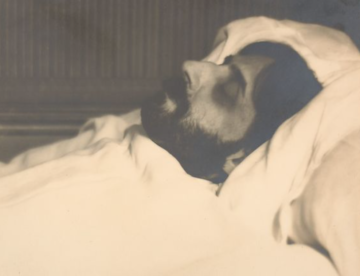 In the spring of 1991, the Romanian comparative-religionist Ioan Petru Culianu was shot to death while seated in a toilet stall near his office in Swift Hall on the campus of the University of Chicago. A single Winchester .25 bullet to the back of the head suggested the work of a trained assassin, who had swooped down upon him from over the wall of the neighboring stall like a hawk.
In the spring of 1991, the Romanian comparative-religionist Ioan Petru Culianu was shot to death while seated in a toilet stall near his office in Swift Hall on the campus of the University of Chicago. A single Winchester .25 bullet to the back of the head suggested the work of a trained assassin, who had swooped down upon him from over the wall of the neighboring stall like a hawk.
The FBI report on the murder was declassified in 2016. While most proper names are blacked out, the several documents it collates still manage to transmit a vivid picture of his life and times, and of the circumstances of his death. The murder remains unsolved, and already in the report we see an unusually thick fog of cluelessness hanging over its investigation. The efforts of the Chicago police detectives to make sense of Balkan politics and of the emerging post-communist order are predictably bone-headed, yet somehow valiant, mixing the high and the low of international intrigue and local color. We learn of one unnamed source, “contacted in Cambridge, Massachusetts,” who notes that Culianu had recently been “very outspoken about the repression in present Romania,” and in particular about the enduring power of the Ceaușescu-era secret police after the 1989 revolution. Another source, by contrast, says that “[h]e did not believe that the victim was shot over Romanian politics. Ioan didn’t seem to care anymore. [His] area of expertise is attractive to ‘wackos’. Some of the students are very bizarre.” In another place in the report a detective patiently listens to an unnamed source who “said he had never heard anyone accuse CULIANU of being a homosexual, however [REDACTED] said he could understand why CULIANU may have been accused of being a homosexual because CULIANU had a foreign accent.” The detective hastens to explain: “It is [REDACTED’S] belief that some people tend to associate those with foreign accents with homosexuality.”
More here.

 Omicron is so contagious that it is still flooding hospitals with sick people. And America’s continued inability to control the coronavirus has deflated its health-care system, which can no longer offer the same number of patients the same level of care.
Omicron is so contagious that it is still flooding hospitals with sick people. And America’s continued inability to control the coronavirus has deflated its health-care system, which can no longer offer the same number of patients the same level of care. 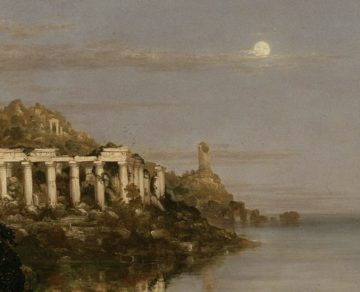 I’d be amazed if you couldn’t sense it—the coming end of things. A woman sits by her grandmother in a St. Louis, Miss., ICU, the older woman about to be intubated because Covid has destroyed her lungs, but until a day before she insisted that the disease wasn’t real. In Kenosha, Wisc., a young man discovers that even after murdering two men a jury will say that homicide is justified, as long as it’s against those whose politics the judge doesn’t like. Similar young men take note. Somebody’s estranged father drives to Dallas, where he waits outside of Deeley Plaza alongside hundreds of others, expecting the emergence of JFK Jr. whom he believes is coming to crown the man who lost the last presidential election. Somewhere in a Menlo Park recording studio, a dead eyed programmer with a haircut that he thinks makes him look like Caesar Augustus stares unblinkingly into a camera and announces that his Internet services will be subsumed under one meta-platform, trying to convince an exhausted, anxious, and depressed public of the piquant joys of virtual sunshine and virtual wind. At an Atlanta supermarket, a cashier who made minimum wage, politely asks a customer to wear a mask per the store’s policy; the customer leaves and returns with a gun, shooting her. She later dies.
I’d be amazed if you couldn’t sense it—the coming end of things. A woman sits by her grandmother in a St. Louis, Miss., ICU, the older woman about to be intubated because Covid has destroyed her lungs, but until a day before she insisted that the disease wasn’t real. In Kenosha, Wisc., a young man discovers that even after murdering two men a jury will say that homicide is justified, as long as it’s against those whose politics the judge doesn’t like. Similar young men take note. Somebody’s estranged father drives to Dallas, where he waits outside of Deeley Plaza alongside hundreds of others, expecting the emergence of JFK Jr. whom he believes is coming to crown the man who lost the last presidential election. Somewhere in a Menlo Park recording studio, a dead eyed programmer with a haircut that he thinks makes him look like Caesar Augustus stares unblinkingly into a camera and announces that his Internet services will be subsumed under one meta-platform, trying to convince an exhausted, anxious, and depressed public of the piquant joys of virtual sunshine and virtual wind. At an Atlanta supermarket, a cashier who made minimum wage, politely asks a customer to wear a mask per the store’s policy; the customer leaves and returns with a gun, shooting her. She later dies.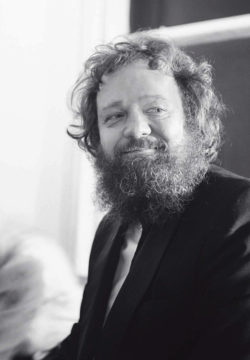 WHEN POETS DIE YOUNG,
WHEN POETS DIE YOUNG, David Bennett, 57, is doing well three days after the experimental seven-hour procedure in Baltimore, doctors say. The transplant was considered the last hope of saving Mr Bennett’s life, though it is not yet clear what his long-term chances of survival are. “It was either die or do this transplant,” Mr Bennett explained a day before the surgery. “I know it’s a shot in the dark, but it’s my last choice,” he said. Doctors at the University of Maryland Medical Center were granted a special dispensation by the US medical regulator to carry out the procedure, on the basis that Mr Bennett – who has terminal heart disease – would otherwise have died.
David Bennett, 57, is doing well three days after the experimental seven-hour procedure in Baltimore, doctors say. The transplant was considered the last hope of saving Mr Bennett’s life, though it is not yet clear what his long-term chances of survival are. “It was either die or do this transplant,” Mr Bennett explained a day before the surgery. “I know it’s a shot in the dark, but it’s my last choice,” he said. Doctors at the University of Maryland Medical Center were granted a special dispensation by the US medical regulator to carry out the procedure, on the basis that Mr Bennett – who has terminal heart disease – would otherwise have died. I
I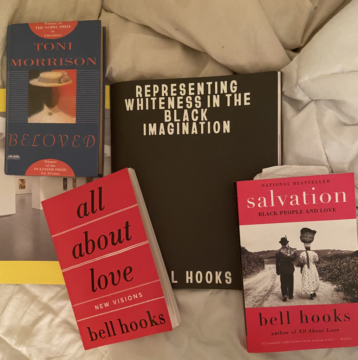 Reading hooks transformed my thinking on a bevy of subjects, including feminism, Buddhism, Christianity, celebrity, sex, romance, and the limits and possibilities of representation. In her 2003 book We Real Cool: Black Men and Masculinity, she notes that “throughout our history in this nation African-Americans have had to search for images of our ancestors.” This is true of my own search for biological forebears, but in terms of intellectual heritage, I feel lucky that I didn’t have to search very far to find the images hooks conjured in words, or the actual photographs of her on dust jackets. She was incredibly prolific, and her books were everywhere when I was coming of age. Since my teens, I’ve enjoyed the slow burn of revelation that comes through encountering and reencountering her work. I’ve learned the importance of being patient enough to let meaning reach me when I’m ready for it, allowing an insight to land slowly and settle in my mind. Rereading hooks has helped me to revel in ideas without necessarily articulating them to anyone but myself, lest I interrupt the process of recognition by blabbing what I think I know too soon. As the old folks say, some things can remain private, and these reading experiences that overwrite each other and take years to develop are among the most pleasurable.
Reading hooks transformed my thinking on a bevy of subjects, including feminism, Buddhism, Christianity, celebrity, sex, romance, and the limits and possibilities of representation. In her 2003 book We Real Cool: Black Men and Masculinity, she notes that “throughout our history in this nation African-Americans have had to search for images of our ancestors.” This is true of my own search for biological forebears, but in terms of intellectual heritage, I feel lucky that I didn’t have to search very far to find the images hooks conjured in words, or the actual photographs of her on dust jackets. She was incredibly prolific, and her books were everywhere when I was coming of age. Since my teens, I’ve enjoyed the slow burn of revelation that comes through encountering and reencountering her work. I’ve learned the importance of being patient enough to let meaning reach me when I’m ready for it, allowing an insight to land slowly and settle in my mind. Rereading hooks has helped me to revel in ideas without necessarily articulating them to anyone but myself, lest I interrupt the process of recognition by blabbing what I think I know too soon. As the old folks say, some things can remain private, and these reading experiences that overwrite each other and take years to develop are among the most pleasurable.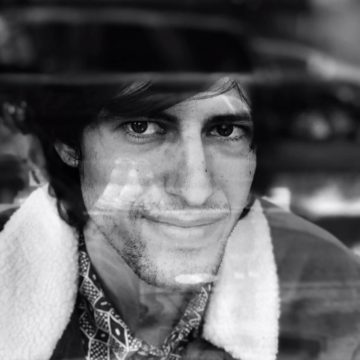 The presumption is that art must shock—that the violation of taboo is what gives art its charge; and that, actually, shock and the overturning of societal norms is art’s highest purpose.
The presumption is that art must shock—that the violation of taboo is what gives art its charge; and that, actually, shock and the overturning of societal norms is art’s highest purpose. In 1963, as the Beach Boys were playing on the radio and Christmas was approaching, two California schoolboys threw a coin. They were deciding who would be the guinea pig in a school science project they had designed—to beat the world record for staying awake. The lucky “winner” was Randy Gardner, a 16-year-old from San Diego. When the experiment was over, he had stayed awake for eleven days and twenty five minutes. It yielded some fundamentally important observations, fortunately recorded by William Dement, one of America’s few sleep researchers at the time. Nearly forty years later, Gardner still holds the world record—which is unlikely to be broken, as the Guinness World Records will no longer accept entries. Why? It is much too dangerous for the brain.
In 1963, as the Beach Boys were playing on the radio and Christmas was approaching, two California schoolboys threw a coin. They were deciding who would be the guinea pig in a school science project they had designed—to beat the world record for staying awake. The lucky “winner” was Randy Gardner, a 16-year-old from San Diego. When the experiment was over, he had stayed awake for eleven days and twenty five minutes. It yielded some fundamentally important observations, fortunately recorded by William Dement, one of America’s few sleep researchers at the time. Nearly forty years later, Gardner still holds the world record—which is unlikely to be broken, as the Guinness World Records will no longer accept entries. Why? It is much too dangerous for the brain.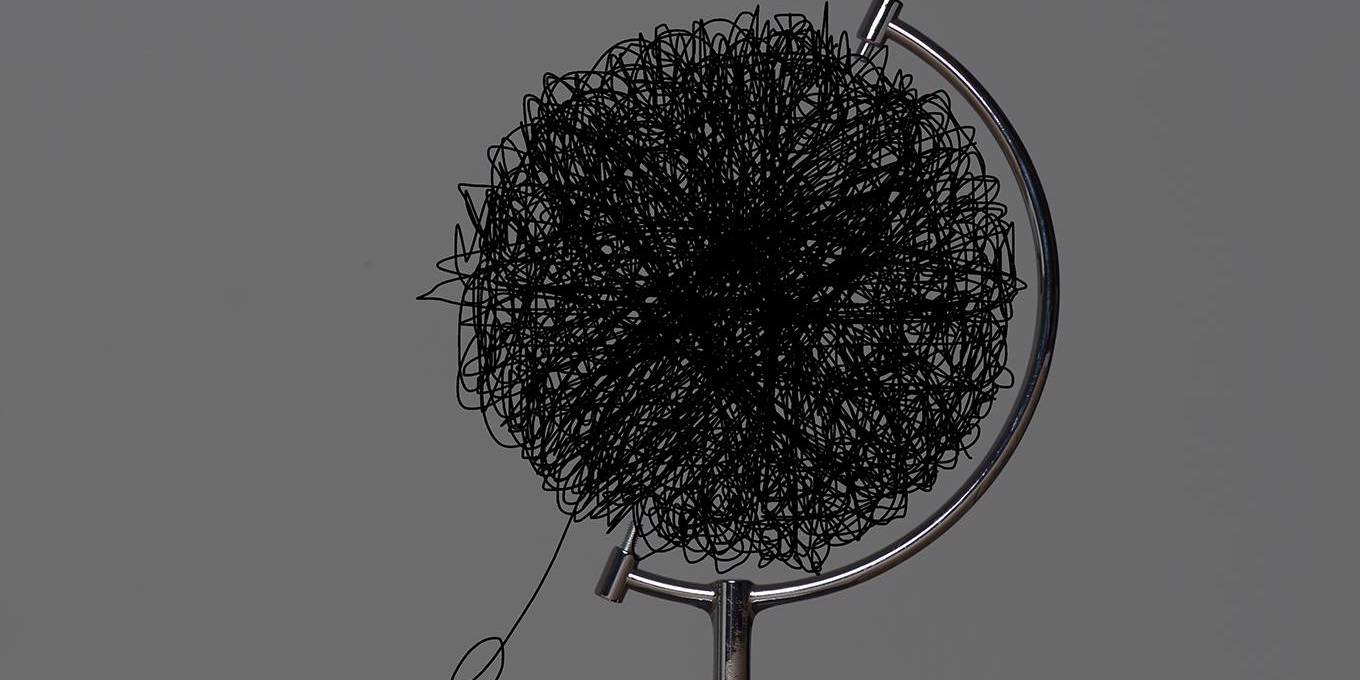 My book,
My book,  The Right to Sex has to have the cleverest title on the women’s studies shelf since Roxane Gay’s Bad Feminist. It’s bold and provocative, even a little shocking: “OK,” it seems to say, “so they’re crazy, misogynistic, and dangerous—but are those incels on to something?”
The Right to Sex has to have the cleverest title on the women’s studies shelf since Roxane Gay’s Bad Feminist. It’s bold and provocative, even a little shocking: “OK,” it seems to say, “so they’re crazy, misogynistic, and dangerous—but are those incels on to something?”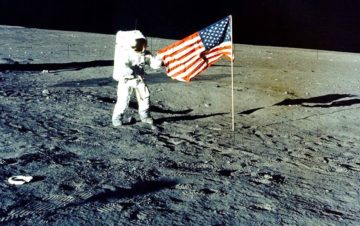 Those venturing into space in 2022 have the moon in their eyes. Not that ferrying all sorts of people into orbit and suborbit will be abandoned. 2021 saw not only astronauts and scientists but also several tourists sent skyward for unmatched views of the big, blue marble that is Earth. They were young and old, women and men, various nationalities – even William Shatner, never a real spaceship captain but who played one on TV.
Those venturing into space in 2022 have the moon in their eyes. Not that ferrying all sorts of people into orbit and suborbit will be abandoned. 2021 saw not only astronauts and scientists but also several tourists sent skyward for unmatched views of the big, blue marble that is Earth. They were young and old, women and men, various nationalities – even William Shatner, never a real spaceship captain but who played one on TV. The hero of “A Hero,” the new film from Asghar Farhadi, is a sign painter and calligrapher named Rahim (Amir Jadidi). As the story begins, he leaves prison and is driven up the wall. To be precise, up a cliff of pale rock, rich in elaborate carvings, northeast of the Iranian city of Shiraz. The cliff is the home of a necropolis, Naqsh-e Rostam, and Rahim finds it covered in scaffolding; climbing high, he greets his brother-in-law, the rotund and genial Hossein (Alireza Jahandideh), who is working at the site. The wind whistles gently around them, and Hossein brews tea, close to the tomb of Xerxes the Great, a Persian king who died almost two and a half thousand years ago. Rahim, by contrast, is on a furlough for two days, after which—not unlike Eddie Murphy in “48 Hrs.” (1982)—he must return to prison. Observing the scene, you feel dizzy at the doubleness of time. It expands and contracts, either stretching far into the distance or slamming shut.
The hero of “A Hero,” the new film from Asghar Farhadi, is a sign painter and calligrapher named Rahim (Amir Jadidi). As the story begins, he leaves prison and is driven up the wall. To be precise, up a cliff of pale rock, rich in elaborate carvings, northeast of the Iranian city of Shiraz. The cliff is the home of a necropolis, Naqsh-e Rostam, and Rahim finds it covered in scaffolding; climbing high, he greets his brother-in-law, the rotund and genial Hossein (Alireza Jahandideh), who is working at the site. The wind whistles gently around them, and Hossein brews tea, close to the tomb of Xerxes the Great, a Persian king who died almost two and a half thousand years ago. Rahim, by contrast, is on a furlough for two days, after which—not unlike Eddie Murphy in “48 Hrs.” (1982)—he must return to prison. Observing the scene, you feel dizzy at the doubleness of time. It expands and contracts, either stretching far into the distance or slamming shut.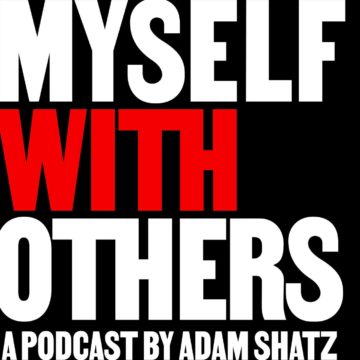 Over at the podcast Myself With Others:
Over at the podcast Myself With Others: